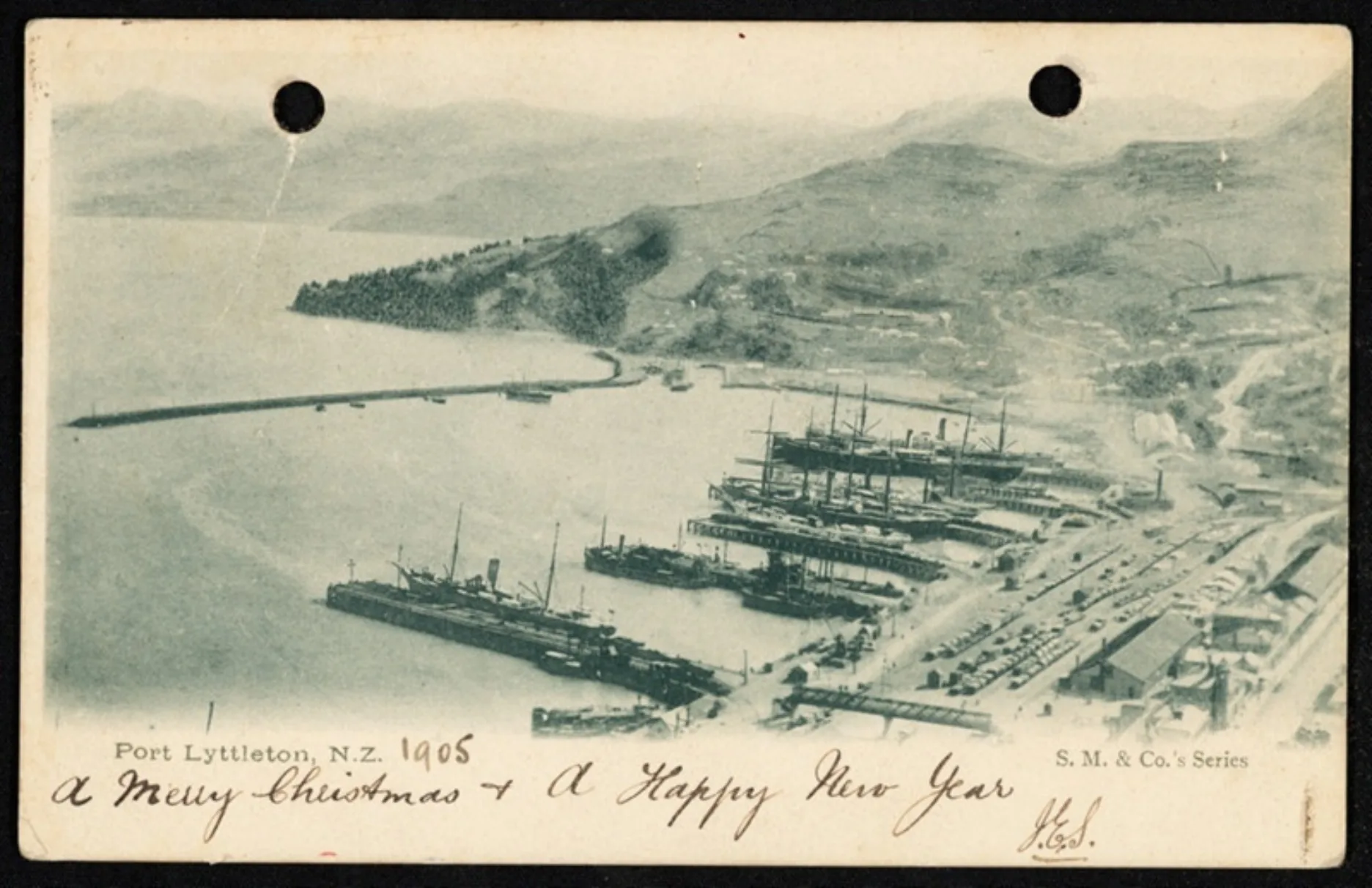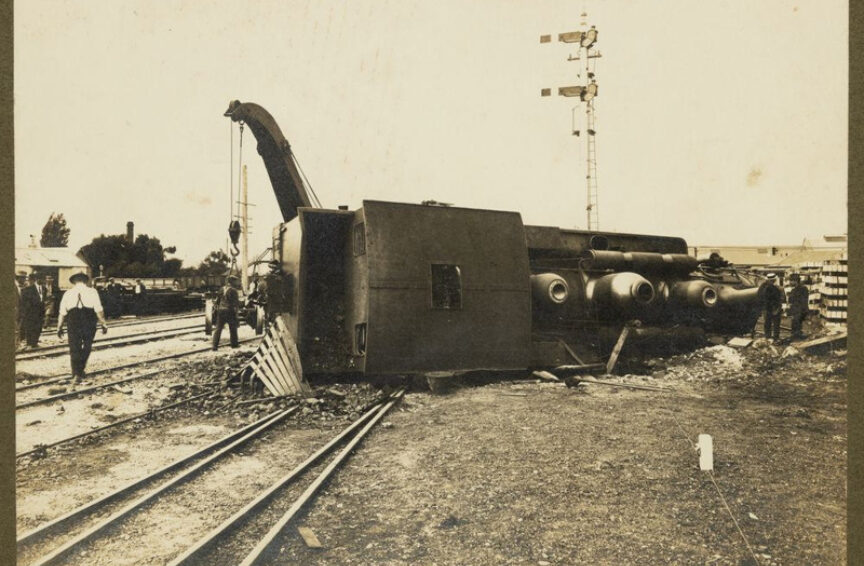PO Box 95
Lyttelton 8841
Te Ūaka recognises Te Hapū o Ngāti Wheke as Mana Whenua and Mana Moana for Te Whakaraupō / Lyttelton Harbour.

A Christmas postcard – View of Lyttelton Port, 1905. Addressed to Captain Sutherland and M. Stokes of Dampier's Bay, Lyttelton.
Te Ūaka The Lyttelton Museum ref. 10563.1
A Very Whakaraupō Christmas 1905
‘Twas the week before Christmas of 1905, and all was quiet in Whakaraupō Lyttelton Harbour after a more or less blissfully uneventful year in His Majesty Edward VII’s British Colony of New Zealand. While that year began with what would later come to be known as the ‘First’ Russian Revolution against the Tsars, followed by Kaiser Wilhelm’s meddling in the ‘First’ Moroccan Crisis, the European cataclysm that these events presaged was still a decade away. Meanwhile, an obscure German fellow by the name of Einstein had published four rather interesting papers in the science journal ‘Annals of Physics’ that literally no one knew would lead to atom bombs, the discovery of galactic black holes, and a microchip computer revolution later that century.
In Aotearoa New Zealand, perhaps the biggest news of 1905 was the resounding success of the national soccer team’s first international tour of Australia, winning 6-3 with just two draws. Somewhat less surprising was the December re-election of the country’s longest serving and rather controversial Prime Minister, "King Dick" Richard Seddon and his Liberal Government for the 16th Parliament. In Ōhinehou Lyttelton, apart from a disappointing start with the postponement of the New Year Regatta due to a fierce southwesterly gale, not much else of note appears to have occurred, although the Lyttelton Borough Council did declare Corsair Bay ‘a pleasure resort for the public of Canterbury’ with works to begin the following year.
And so we come to the Whakaraupō Christmas festivities of 1905, headlined by the St John’s Presbyterian Church Bazaar which opened Friday evening December 22 at the Lyttelton Railway Social Hall and would run, on and off, through to New Year’s Day. Organised by the erstwhile Presbyterian Women of the local congregation to raise funds for a new school house, the stalls included local produce, ornaments, flowers, dolls and even a shooting range, all of which proved popular with the townsfolk. The following Saturday eve, which functioned as an informal Christmas Eve for many, the Salvation Army Band wandered the streets singing carols, apparently competing with the Lyttelton Marine Band for audiences who were less in evidence than a usual Saturday night. No doubt, many townsfolk had trained into the city for the revelries. Nonetheless, quiet night or no, some wags still had to let off a few firecrackers to disturb the peace!
The actual Christmas Eve on Sunday was celebrated with evensong carols, and large congregations turned out at the churches of the Holy Trinity, St Saviours, St Johns and St Josephs to celebrate the Western Christian Festival of Nativity, while the Lyttelton Marine Band performed the traditional Christmas ‘Waits’ through the town until late. Christmas Day on Monday 25 December 1905 was apparently rather pleasant, with the church services over early, and the Marine and Salvation Army bands’ carols and Christmas hymns echoing through the town’s streets into the afternoon. It’s said that many people even then, rather than sweating over a traditional English-style steaming hot Christmas pudding, took to the hills and beaches for cool summer recreation.
While many Canterbury train services were cancelled for Christmas Day, the Christchurch to Lyttelton service continued non-stop and saw many hundreds of ‘flatlanders’ visiting the harbour. The passenger steamers were busy too, through to Boxing Day, ferrying holidaymakers to Diamond Harbour’s Godley House and pleasure gardens, and out to Governors Bay, its Ocean View Hotel and pleasant surrounds. With reportedly ‘delightful’ weather for swimming and yachting, this was a very Whakaraupō Christmas. And so we wish a happy Christmas to all, and the best of the New Year!

